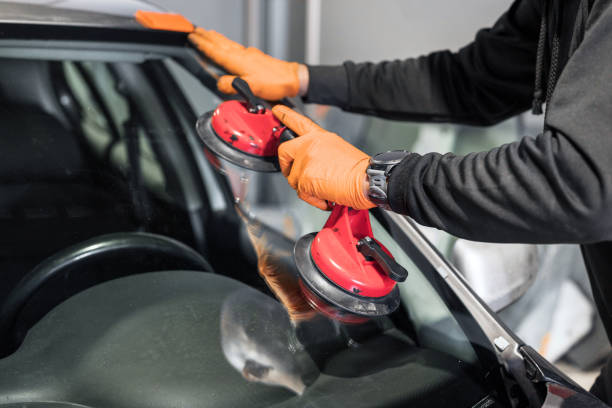Need To Get Your Car Fixed? Read This First!
If you have run into some car trouble, you are far from alone. Part of owning a car is having to fix the numerous problems that arise with it. Getting it serviced at a repair shop is fine for serious problems, but why not take care of the little stuff on your own. The article below will show you how.
Be very careful when touching the electronic parts on your car. You should not touch wires unless the entire system is turned off. You should pay attention to the warning labels on the different parts of your car; touching some parts can be dangerous even when your car is turned off.
Check the transmission fluid every two to three months. Let your engine run and open the hood of your car. Use the transmission dipstick to check the fluid levels. If there is not enough fluid in your transmission you probably have a leak somewhere in your system. It is best to take the car to a mechanic so he can locate the leak.
If any parts of your car need to be replaced, make sure you ask for the (OEM) Original Equipment Manufacturer parts instead of generic parts. Keeping the exact specifications required by the manufacturer is essential in having optimum performance. Although generic parts are cheaper, spending a little more on OEM parts will make a big impact on your car's longevity.
Follow your car's tune up schedule. Each car is different, and that means each has different needs. A tune up schedule for one will not be the same for another. Look into your car manual for details on a proper tune-up schedule for your model. Otherwise, you could have more problems in the future.
A dent or scratch in a plastic bumper is very easy to fix. Start by cutting the bits that stick out from the dent until the edges are smooth. You can then use a filler to make the dent disappear. Sand over the area and paint to hide the repair.
Whenever you get gas, check the pressure in your tires. Inspect your tires at this time, looking for anything that has become embedded. Any problems should be fixed immediately. Driving on the highway with corrupt tires can be very dangerous.
Unless it is required by your car's warranty, don't feel obligated to use the repair shop at the dealership. There are many reputable independent auto repair shops and they are often cheaper. Ask your friends and family members for a recommendation if you are unsure which shops in your area are trustworthy.
You need to learn more about different car parts before taking your vehicle to a repair shop. The classification of parts include new, rebuild and reconditioned, and salvage. New parts are brand new and made to the manufacturer's specification. Refurbished or reconditioned parts ate those that have been restored to working condition. "Salvage" means that it came off a car and hasn't been fixed.
Do not fall prey to the notion that you have to get a tune-up at any specific time. Every car is different, and the manufacturer will indicate when you should bring the vehicle in to the shop. By following that schedule, your car is much more likely to run well.
Do not ignore unusual noises you hear when driving. Clunks, screeches, clicks and pings are usually caused by loose parts. Take your car to a trustworthy mechanic and describe the noise as best as you can. Your mechanic will probably replace or adjust the parts that were causing the noise.
Be sure to verify that the shop that you is properly licensed. If they are not, there is probably a reason for it, which could range from fraud to faulty repairs. Never use a shop that does not hold all of the licenses that they should in order to operate as a business.
Keep detailed records of all the repairs you did on your vehicle and ask the previous owners if they can provide you with their records. If you need to have a mechanic diagnose a problem, show them your records. Your mechanic will recognize recurring issues and know not to waste time on parts that have been replaced recently.
If you have to drop your car off at a garage or dealership, instruct the mechanics that you wish to be called with an estimate before they do any work on your car. Do not let a mechanic convince you to pay for expensive repairs because the vehicle is already partly dismantled.
Working on your car can make you feel uneasy, especially if you are new to auto repair. However, if you use the tips mentioned in the article above, there is no reason why you can't successfully repair your auto problems. This way, you'll save money, and feel great about tackling a problem yourself.

